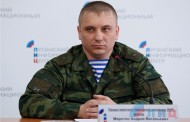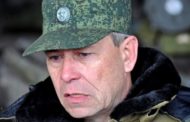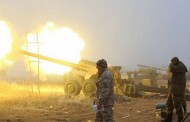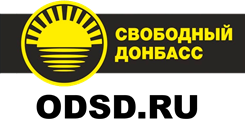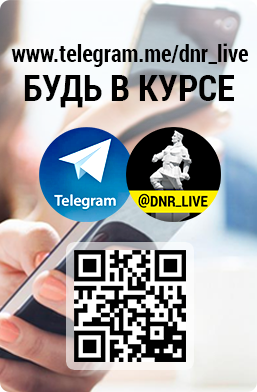U.S. counterintelligence agents have investigated communications that President Donald Trump’s national security adviser had with Russian officials, according to people familiar with the matter.

Michael Flynn is the first person inside the White House under Mr. Trump whose communications are known to have faced scrutiny as part of investigations by the Federal Bureau of Investigation, Central Intelligence Agency, National Security Agency and Treasury Department to determine the extent of Russian government contacts with people close to Mr. Trump.
It isn’t clear when the counterintelligence inquiry began, whether it produced any incriminating evidence or if it is continuing. Mr. Flynn, a retired general who became national security adviser with Mr. Trump’s inauguration, plays a key role in setting U.S. policy toward Russia.
The counterintelligence inquiry aimed to determine the nature of Mr. Flynn’s contact with Russian officials and whether such contacts may have violated laws, people familiar with the matter said.
A key issue in the investigation is a series of telephone calls Mr. Flynn made to Sergey Kislyak, the Russian ambassador to the U.S., on Dec. 29. That day, the Obama administration announced sanctions and other measures against Russia in retaliation for its alleged use of cyberattacks to interfere with the 2016 U.S. election. U.S. intelligence officials have said Russian President Vladimir Putin ordered the hacks on Democratic Party officials to try to harm Hillary Clinton’s presidential bid.
Officials also have examined earlier conversations between Mr. Flynn and Russian figures, the people familiar with the matter said. Russia has previously denied involvement in election-related hacking.
In a statement Sunday night, White House spokeswoman Sarah Sanders said: “We have absolutely no knowledge of any investigation or even a basis for such an investigation.”
Earlier this month, Sean Spicer, then spokesman for the Trump transition team and now White House press secretary, said the contacts between Messrs. Flynn and Kislyak dealt with the logistics of arranging a conversation between Mr. Trump and Russia’s leader.
U.S. officials have collected information showing repeated contacts between Messrs. Flynn and Kislyak, these people said. It is common for American officials’ conversations with foreign officials to surface in NSA intercepts, because the U.S. conducts wide-ranging surveillance on foreign officials. American names also may surface in descriptions of conversations shared among officials of foreign governments.

The Senate Intelligence Committee is also looking into any possible collusion between Russia and people linked to Mr. Trump, top senators have said. That is part of the committee’s broader probe into Russian election interference. Counterintelligence probes seldom lead to public accusations or criminal charges.
In the counterintelligence inquiry, activities of former Trump campaign chairman Paul Manafort and advisers Roger Stone and Carter Page have come under scrutiny due to their known ties to Russian interests or their public statements, people familiar with the matter said.
The line of inquiry related to Mr. Manafort grew out of a probe into people associated with the collapsed government of Russia-backed Ukrainian President Viktor Yanukovych, who counted Mr. Manafort as an adviser before being ousted by pro-Europe street protesters in early 2014.
As U.S. investigators aided Ukrainian prosecutors hunting for funds pilfered from Mr. Yanukovych’s government, they have tried to determine if any conduct also involved violations of U.S. law by Mr. Manafort or others, the people said.
Mr. Manafort denied any wrongdoing. He said his work in Ukraine focused on moving the country toward the West. He denied any relationship with the Russian government or Russian officials.
“Anyone who takes the time to review the very public record will find that my main activities, in addition to political consulting, were all directed at integrating Ukraine as a member of the European community,” Mr. Manafort said in an emailed statement.
“I have never had any relationship with the Russian [government] or any Russian officials,” Mr. Manafort added. “I was never in contact with anyone, or directed anyone to be in contact with anyone.”
Of alleged Russian cyberhacking, he said: “My only knowledge of it is what I have read in the papers.”
Mr. Stone is a longtime Republican political operative who left Mr. Trump’s campaign in mid-2015 and previously worked with Mr. Manafort at a lobbying firm.
Mr. Stone drew scrutiny after hinting in August that Mrs. Clinton’s campaign manager John Podesta would soon be in trouble. In October, WikiLeaks began releasing emails stolen from Mr. Podesta.
U.S. intelligence agencies have concluded that his account was hacked on behalf of Russian spy agencies.
Mr. Stone denied collusion with Russia or WikiLeaks. He said he hadn’t spoken to anyone in Russia “in many years.” He accused U.S. government officials in the “deep state” who oppose Mr. Trump and are angry about his election victory of peddling the theory that Mr. Stone and other Trump advisers have ties to Moscow.
“This is nonsense,” Mr. Stone said in a phone interview. He said he hadn’t been contacted by the FBI or other government officials, including Congress, about ties to Russia.
Mr. Stone said he has a conduit to Julian Assange through “an American journalist,” who he said communicates with the WikiLeaks founder, now living in the Ecuadorean embassy in London. Mr. Stone declined to identify the journalist, whose job could be jeopardized by the association with Mr. Assange, according to Mr. Stone.
Mr. Page, a businessman whom Mr. Trump identified in March 2016 as one of his foreign-policy advisers, has drawn attention for his meetings in Moscow during the presidential campaign.
An unsubstantiated dossier of opposition research compiled by a former MI6 officer said Mr. Page held meetings with Igor Sechin, a longtime aide to Mr. Putin and current head of Russian state oil giant Rosneft, as well as a top Kremlin political operative Mr. Page denied the allegations.
In a text message to The Wall Street Journal, Mr. Page said he was giving a speech at a Russian university at the time the dossier placed him at the meetings. Mr. Page said he spoke with university officials, think-tank scholars and a few businesspeople.
- Будь в курсе последних новостей и интересных статей, подписывайся на наш канал «NovorossiaToday»
- Be aware of the current events and interesting articles, subscribe to our channel «NovorossiaToday»
- Pour ne rien manquer de la derniere actualite et des articles interessants, suis notre chaine Telegram en direct«NovorossiaToday»

